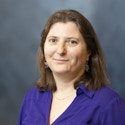Simons Investigators
- Email:
[email protected]
Simons Investigators are outstanding theoretical scientists who receive a stable base of research support from the foundation, enabling them to undertake the long-term study of fundamental questions.
The Investigator program has been discontinued.
Simons Investigators in Mathematics, Physics, Astrophysics and Computer Science
The intent of the Simons Investigators in Mathematics, Physics, Astrophysics and Computer Science programs is to support outstanding theoretical scientists in their most productive years, when they are establishing creative new research directions, providing leadership to the field and effectively mentoring junior scientists. A Simons Investigator is appointed for an initial period of five years. Renewal for an additional five years is contingent upon the evaluation of scientific impact of the Investigator.
Simons Investigators in Mathematical Modeling of Living Systems (MMLS)
This program aims to help the research careers of outstanding scientists working on mathematical and theoretical approaches to topics in the life sciences. A Simons Investigator in MMLS is appointed for five years.
Math+X Investigators
This program encourages novel collaborations between mathematics and other fields in science or engineering by providing funds to professors to establish programs at the interface between mathematics and other fields of science or engineering. A Math+X Investigator is appointed for an initial period of five years. Renewal for an additional five years is contingent upon the evaluation of scientific impact of the Investigator.
- Email:
[email protected]
- Email:
[email protected]
2023
Aaron Naber, Ph.D.
Northwestern University
Aaron Naber is a geometric analyst working on the regularity, singularity and topology of geometrically motivated equations. Naber has proved, together with collaborators, the rectifiable structure for singularities of geometric equations, including nonlinear harmonic maps, minimal hypersurfaces and spaces with lower Ricci bounds. This direction of analysis has led to the resolution of several open problems and conjectures, including the energy identity for Yang Mills and the L2 curvature conjecture. In another direction, Naber has settled, together with coworkers, a variety of open problem on spaces with lower Ricci bounds, including the codimension four conjecture and the Milnor conjecture.
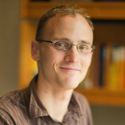
Davesh Maulik, Ph.D.
Massachusetts Institute of Technology
Davesh Maulik works in algebraic geometry, with an emphasis on the geometry of moduli spaces. In many cases, this involves using ideas from neighboring fields such as mathematical physics, symplectic geometry and representation theory. His most recent work has focused on moduli spaces of Higgs bundles and various conjectures regarding their structure.
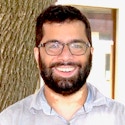
Jacob Tsimerman, Ph.D.
University of Toronto
Jacob Tsimerman is a number theorist working at the intersection of analytic number theory, algebraic geometry and Hodge theory. Much of his work has been on the subject of ‘unlikely intersections,’ which is a web of finiteness conjectures asserting that rational solutions should only exist for geometrically motivated reasons. With collaborators, he has recently proven the André-Oort conjecture. Tsimerman’s other work has included applying the methods of logic via o-minimality to Hodge theory, resulting in the development of powerful new methods and a proof of the Griffiths conjecture.
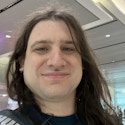
Vlad Vicol, Ph.D.
New York University
Vlad Vicol works in the field of nonlinear PDEs, focusing on models arising in fluid dynamics. His main contributions concern the regularity of critical active scalar equations, the vanishing viscosity limit in the presence of boundaries, the construction of turbulent weak solutions for both Euler and Navier-Stokes, and the analysis of multi-dimensional shock waves.
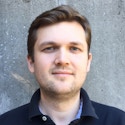
Emanuele Berti, Ph.D.
Johns Hopkins University
Emanuele Berti is a theorist whose research interests include black holes, neutron stars, gravitational-wave astronomy and astrophysical tests of general relativity. He has worked on various topics in gravitational-wave science, including black hole quasinormal modes, higher multipole radiation and spin precession in binary systems, astrophysical scenarios for the formation and evolution of compact binaries, and modified theories of gravity. Berti is contributing to the development of the science case for the space-based detector LISA and for next-generation ground-based detectors.
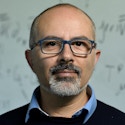
Aram Harrow, Ph.D.
Massachusetts Institute of Technology
Aram Harrow studies quantum computing and information. He works to understand the capabilities of the quantum computers and quantum communication devices we will build in the future, and in the process, he creates connections to other areas of theoretical physics, mathematics and computer science. He has developed quantum algorithms for solving large systems of linear equations and hybrid classical-quantum algorithms for machine learning. Harrow has also contributed to the intersection of quantum information and many-body physics, with work on thermalization, random quantum dynamics and the “monogamy” property of quantum entanglement.
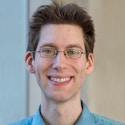
Daniel Jafferis, Ph.D.
Harvard University
The research of Daniel Jafferis spans many areas of quantum gravity, string theory and quantum field theory. Current directions include understanding bulk observables in holography and extracting lessons for de Sitter spacetime, precisely formulating the statistical ensembles encoding the pseudo-random aspect of chaotic conformal field theories, understanding entanglement entropy in string theory, finding physically realizable quantum systems that exhibit features of emergent gravity, and formulating and resolving the overcounting problem of semi-classical black hole microstates. The overarching goal is to find the full formulation of the laws of physics, in particular the fundamental framework that describes quantum gravity in an expanding universe.
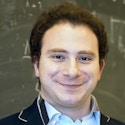
David Kaplan, Ph.D.
Johns Hopkins University
David Kaplan is a theoretical physicist proposing extensions to the standard models of particle physics and cosmology and finding new ways to test them experimentally. He has discovered models of a naturally small cosmological constant and Higgs mass, classical solutions for firewalls in general relativity, and causal modifications of quantum mechanics. He has also found testable models of dark matter, dark energy and dark radiation. He has proposed algorithms to discover both heavy and long-lived particles at colliders, as well as techniques for discovering dark matter and new elementary forces using new technologies in novel ways.
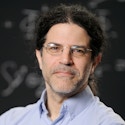
Norman Yao, Ph.D.
Harvard University
Norman Yao’s research combines ideas from atomic physics, condensed matter and quantum information, with a focus on proposing laboratory realizations of novel strongly-correlated phenomena. He is known for his work on non-equilibrium phases of matter, ranging from time crystals to Floquet topological phases. Yao’s recent work has contributed to our understanding of ergodicity in many-particle classical and quantum systems, as well as strategies to avoid this fate. With collaborators, he introduced new ways to characterize topological phases, many-body quantum teleportation and entanglement dynamics in a wide array of quantum simulation platforms.
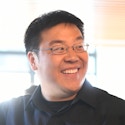
Ruth Baker, Ph.D.
University of Oxford
Ruth Baker’s research develops and draws together concepts from a number of fields, including statistical physics, multiscale modelling, stochastic processes, computational statistics and machine learning, to provide novel insights into the mechanisms governing cell and developmental biology phenomena. She works in close collaboration with experimental researchers to iteratively test and refine novel mechanistic hypotheses using repeated rounds of model development, calibration and refinement. In turn, the biological problems she studies drive the development of new theory and methodologies.
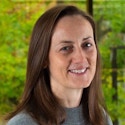
Leonid Mirny, Ph.D.
Massachusetts Institute of Technology
Leonid Mirny combines biophysical modeling with analysis of large genomics data to address fundamental problems in biology. Mirny aims to understand how long DNA molecules of chromosomes are folded in 3D, and how this 3D organization is used by living cells. The Mirny group has proposed that DNA is folded by molecular motors that perform “loop extrusion.” The loop extrusion hypothesis has been confirmed experimentally and has revolutionized our understanding of chromosomes across all organisms. Now, Mirny aims to understand how cells use this and other physical mechanisms to regulate its genes, repair DNA and maintain epigenetic memory.
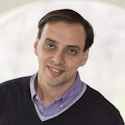
Eugene Chiang, Ph.D.
University of California, Berkeley
Eugene Chiang is a theorist with interests in all things planetary. He has worked on proto-planetary disks, post-planetary debris disks, orbital dynamics and planetary atmospheres. A current focus is determining the properties of planets still accreting from their parent disks, to help interpret observations and place planet formation on an empirical footing.
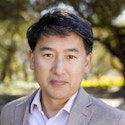
Philip Hopkins, Ph.D.
California Institute of Technology
Phil Hopkins is a theoretical astrophysicist working on a range of problems including galaxies, stars, planets, dark matter and black holes. He has pioneered development of novel high-resolution numerical computational simulations to study complex multi-physics astrophysical systems, in particular those where microphysical and macroscopic astrophysical scales are strongly-coupled. His group has played a crucial role in constraining and testing different dark matter models, understanding the origins and nature of super-massive black holes and quasars, explaining why stars and galaxies have the masses and structure we observe, and exploring the physics of relativistic particles in interstellar gas.
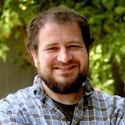
Vinod Vaikuntanathan, Ph.D.
Massachusetts Institute of Technology
Vinod Vaikuntanathan’s research is in the foundations of cryptography and its applications to theoretical computer science at large. He is known for his work on fully homomorphic encryption, a powerful cryptographic primitive that enables complex computations on encrypted data, as well as lattice-based cryptography, which lays down a new mathematical foundation for cryptography in the post-quantum world. Recently, he has been interested in the interactions of cryptography with quantum computing, as well as with statistics and machine learning.
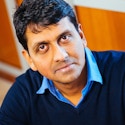
Santosh Vempala, Ph.D.
Georgia Institute of Technology
Santosh Vempala has made fundamental advances in the theory of algorithms: for sampling high-dimensional distributions, computing the volume of a convex body, optimization over convex sets, randomized matrix approximation, as well as basic problems in machine learning. In many cases, these were the first polynomial-time algorithms and co-evolved with insights into high-dimensional geometry and probability. Recent highlights include proving that sufficiently sparse linear systems can be solved faster than matrix multiplication (Ax=b, the workhorse of modern computation); extending sampling methods to non-Euclidean (Riemannian) geometries to make them faster (leading to practical methods in very high dimension); pioneering techniques for algorithmic robust statistics (immune to adversarial corruptions); and developing a rigorous theory of computation and learning in the brain in a biologically plausible model (how does the mind emerge from neurons and synapses?). He continues to be puzzled by whether an unknown polytope can be learned in polytime from samples, whether its diameter is bounded by a polynomial in its description length, whether its volume can be computed in polytime without randomization, and whether the answers to these questions will be discovered by humans or by AI.
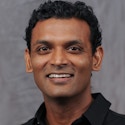
Virginia Williams, Ph.D.
Massachusetts Institute of Technology
Virginia Vassilevska Williams' research is broadly in theoretical computer science, and more specifically in designing algorithms for graphs and matrices, and uncovering formal relationships between seemingly very different computational problems. She is known for her work on fast matrix multiplication, both in co-developing the world's fastest algorithm and in proving limitations on the known techniques for designing matrix multiplication algorithms. Williams is also one of the original founders and leaders of fine-grained complexity, a blossoming new branch of computational complexity.
